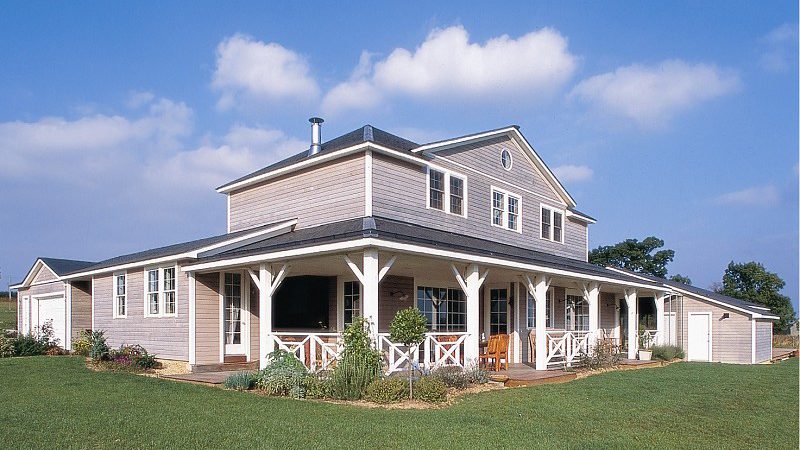Click here to view the property in the image above.
Short-term seasonal rentals are becoming more and more regulated in France. What steps are to be taken to rent your house or apartment legally?
Taking into account all the possible gains, seasonal rentals have become very attractive. Putting your property on a short-term lease offers many advantages, such as benefiting from a more flexible regulation than conventional furnished or unfurnished rentals. But actually facing the rapid development of private rental websites such as Airbnb, Homelidays or Abritel, the French government has taken new measures to regulate this activity in order to face the housing crisis in France.
Following the Airbnb decree – which allows municipalities with more than 200,000 inhabitants to now be able to compel renters (customers) on digital platforms to declare themselves in town halls – let’s take a look on the regulations surrounding this activity in order to allow you to rent with serenity.
The duration
Firstly, note that each short term lease must not exceed 90 days for the same tenant in both your secondary and principal residence.
Concerning the principal residences – that is the dwelling in which you reside most of the time, if you are in France, the dwellings can not be leased for more than 120 days per year and the rental platforms must ensure that this maximum period is respected.
Second homes may be rented without any limitation of the number of days in the year.
The steps to be taken
If it is your second home, you must absolutely make a declaration in town hall, regardless of the size of the municipality. The situation may be complicated if your property is located in a so-called “tense” area, that is to say in the cities of more than 200,000 inhabitants and the departments
bordering the capital. Town halls may require an authorisation to change the use of the dwelling. Some municipalities, such as Paris and Nice, impose, for example, a “compensation”, in other words,
to buy back a commercial lease to make this change.
In Paris
If your property is located in Paris, you are obliged to respect compensation rules; That is to say, for 1 square metre of housing transformed into furnished seasonal rental, 1 square metre of commercial
estate must be transformed into habitation. Some boroughs are subject to stronger compensation where it would require compensation of 2 square meters of commercial estate. Not following these rules in Paris exposes the owner of the property to a fine of up to 50,000 euros per dwelling and a penalty payment of up to 1,000 euros per day per square meter until regularisation. If the owner of the property passes through an agency or an Internet platform (like Airbnb or others), the lessor must declare on his honor that he has obtained this change of use.
Case of a Condominium
Is your property (principal or secondary residence) is located in a condominium, you must ensure that the settlement of the building does not prohibit the furnished seasonal rentals.
Tenants:
If you are a tenant of the property, you must obtain the written consent of the owner of the property. If you are not authorized to do so, this may be considered as a reason for termination of the lease. On the other hand when you have the authorization of the owner, you can not rent at an
amount higher than the rent.
The dwelling leased must respect minimum conditions of habitability and comfort. Contracts with tenants are supervised and you must provide a technical diagnostic file. The law has also strengthened provisions for the regulation and control of this type of rental. It allows the municipalities with more than 200,000 inhabitants and the ones located in the small Parisian crown to require a registration and to set up a procedure for tele-declaration for all short-term rentals.
When registering online, the rental provider will be given a “registration number” which must be included in the seasonal rental announcement published by an intermediary (real estate agent or digital platform). This “permit to rent” is mandatory, and this for all municipalities subject to a
change of use license who will decide to apply the device. The measure, which had been provided for by law for a digital Republic of 7 October 2016, had not yet been put in place since the Decree establishing the modalities had just been published (28 April 2017).
The fees
Landlords must incorporate the rents obtained in their income tax returns. (The same applies to tenants in the case of subleases). The latter are subject to the BIC tax regime (industrial and commercial profits).
In the municipalities that apply it, the landlord is also obliged to charge the tenant’s tax and return it to the municipality. In some forty cities, including Paris, the digital platform Airbnb levies the tourist tax directly.
Other measures that hardens the obligations of lessors in seasonal rental
Beyond 23,000 euros in rental income per year, individuals must, since 1 January 2017, join the RSI
(Social Regime of Independents), and pay the corresponding contributions. The Social Security Financing Act for 2017, however, allows, in certain cases, to derogate from this new obligation by opting for affiliation to the general social security scheme. In this configuration, social contributions are determined on the basis of rental income, reduced by 60% (87% for classified accommodation).
To facilitate monitoring, platforms will have to report to the tax authorities the revenues realized by their users from 1 January 2019.
Finally, insurance is not compulsory for this activity but strongly advised. Consider integrating this clause into the lease.
For further financial advice, visit the Cabinet Roche & Cie website for detailed financial advice on French property.
